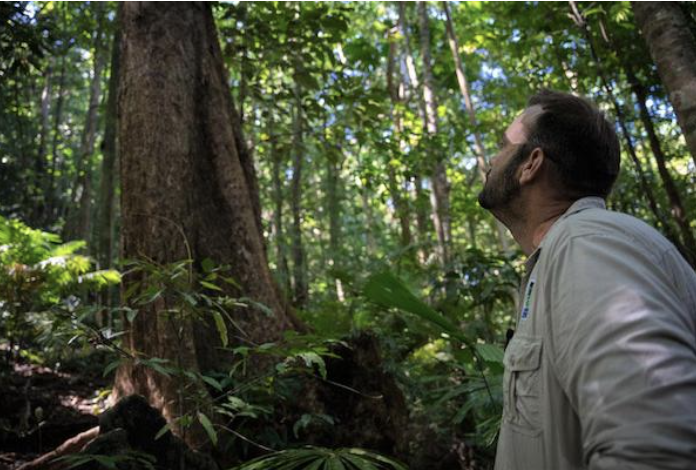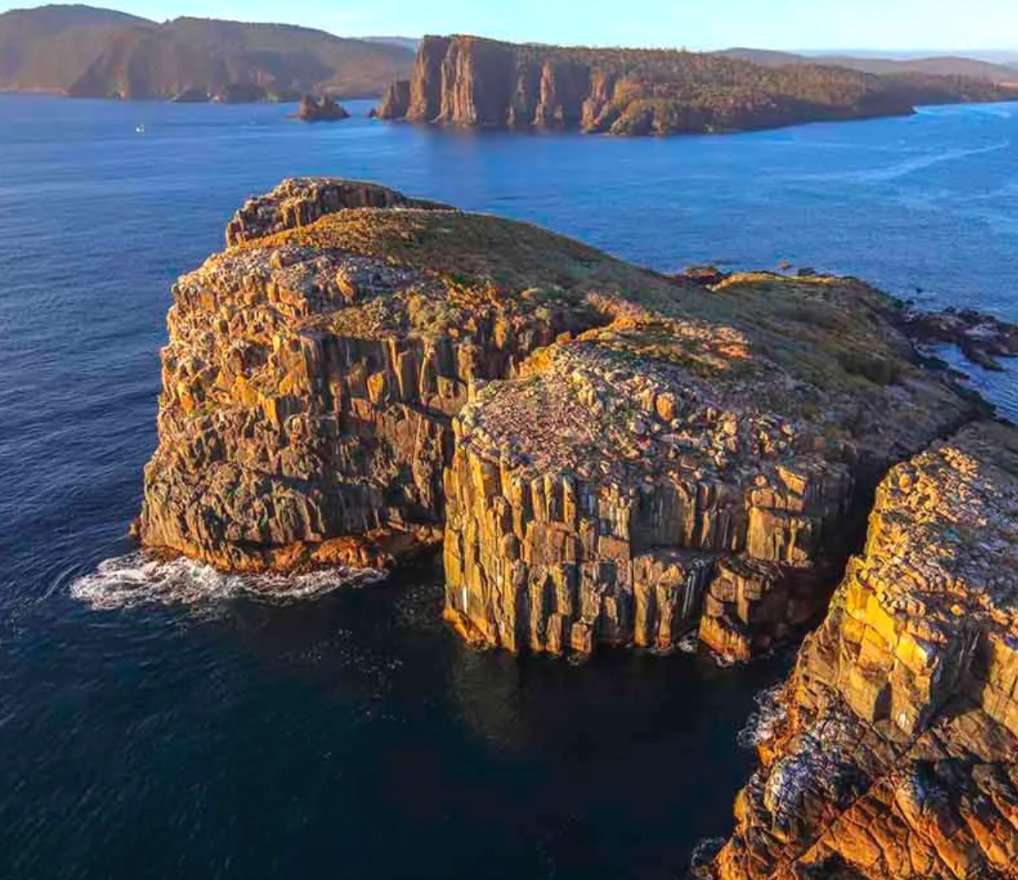Projects & Programmes Supported 2023-2024
-

Invasive Species Programs and Advocacy
Four mega-threats are the major drivers of Australia’s extinction crisis: invasive species, climate change, adverse fire regimes and habitat destruction.
Right now, invasive species are driving more than 80 per cent of Australia’s most vulnerable native plants and animals towards extinction.
Century-old Moreton Bay Fig trees have been cut due to a new tree-killing invasive – the bullet beetle. Another 1 billion animals – some critically endangered, like the numbat – will be killed by cats each year.
Unique animals like koalas, echidnas and loggerhead turtles will be harmed by fire ants if they are not stopped.
The Invasive Species Council focuses on strengthening laws and policies to prevent future invasions and better protect the Australian environment against these threats.
Grant for advocacy and direct program support, Invasive Species Council. $2,500 June 2024.
Learn more at https://invasives.org.au/
-

New Research for Customised Rainforest Rehabilitation
Queensland’s wet tropics have suffered immense land clearing - much of it in the last generation. However rainforest rehabilitation is possible and can be remarkably successful. But how do we help everyone do it in the most effective way?
Recently Rainforest Rescue began a new research programme with their in-house team and researchers from James Cook University to answer this question and help the many farmers and other landowners to rebuild lost rainforest ecosystems.
The research will establish new regeneration protocols - including analysis of the types of soil at each site, and how many trees (and of what species) will be required to create a healthy rainforest. In short - moving away from a ‘one size fits all’ approach that at the moment is cost prohibitive for many landowners.
Research Seeding Partner, Rainforest Rescue. $7,000. April 2024
Learn more at https://www.rainforestrescue.org.au/
-

Early Career Opportunities in the Environmental Sector
People are key to the ongoing protection of our natural environments and bringing the bush back to good health.
The Bush Heritage Seeding the Future Program offers aspiring conservationists pathways to learn and hone best-practice skills and approaches.
The program offers various entry points into environmental careers and participants are provided with mentoring and skill development in office- and field-based roles, both in science and conservation management, and broader business functions.
The program supports participants working in a range of fields in the conservation sector, from data spatial analysis to invasive species management.
Grant to support program, Bush Heritage Australia. $5,000 February 2024.
Learn more at https://www.bushheritage.org.au/
-

Research to Protect the Endangered Forty-Spotted Pardalote
For a number of years Inala Foundation has worked in partnership with Australian National University (ANU) to monitor a population of endangered forty-spotted pardalotes on the Inala Nature Reserve, a 1500-acre conservation covenanted property on Bruny Island, Tasmania.
Their work has included bespoke nesting boxes to replace lost habitat. But what’s the best box that lets in just this bird - and not others?
Initial results have indicated an optimal size to comfortably allow forty-spotted pardalotes to enter the nesting boxes and exclude other birds. But further monitoring from specialist tree climbers is required to make a more comprehensive assessment.
Grant for ongoing work at nesting box sites, Inala Foundation. $5,000. December 2023.
Learn more at https://inalanaturefoundation.com.au/
-

Education and Advocacy for Healthy Marine Environments in Tasmania
Tasmania/lutuwita has some of the most beautiful waterways in Australia. From the wild ocean beaches and cliffs of the Tasman peninsula to the world heritage value Macquarie Harbour, these waterways are home to incredible animals, some found only here like the Maugean Skate or the Red Spotted Handfish.
However, these waterways and animals are under threat from toxic inputs and outputs that large scale salmon farming employs. Excess nutrients used produce algal blooms, reducing oxygen levels and suffocating all other sealife.
The Bob Brown Foundation conducts education and advocacy to protect the rare sealife here.
Grant for education and advocacy, Bob Brown Foundation. $5,000, November 2023
Learn more at https://bobbrown.org.au/
-

Research into Far North Eastern Koala Populations
Koalas in far north Queensland have not previously been studied but may be a ‘refugia’ population with unique genetics.
This project aims to fill this critical knowledge gap, establishing baseline information on the biology and health status of koalas of far north Queensland and providing the basis for further research that may benefit koalas throughout Australia
The Tree-Kangaroo and Mammal Group (TKMG) is an incorporated community group based on the Atherton Tablelands in Far North Queensland, Australia. The group is a strong and active advocacy, education and conservation group..
Second grant, this for operational activities, The Tree Kangaroo and Mammal Group. $1,000, October 2023
Learn more at https://www.tree-kangaroo.net/
-

Protection of Ancient Northern Territory Anbinik Forests
Anbinik (Allosyncarpia ternata) has been described by Northern Territory Nawarddeken Elders as ‘the tree from the very beginning.’ Anbinik is a proto-eucalypt, meaning it is the ancestor to the eucalypt species found across Australia today. Anbinik is endemic to the Kuwarddewardde where it grows in dense monsoon rainforest communities, forming pleasant cool areas in an increasingly hot climate.
Anbinik are also slow-growing, fire-sensitive trees that have adapted to care, meaning they take decades to recover from the damage of uncontrolled wildfires.
They are a deeply important cultural asset to Nawarddeken whose protection is an extremely high priority during key seasons.
Active traditional fire management at 26 key sites. Karrkad Kanjdji Trust. $5,000. October 2023
Learn more at https://kkt.org.au/
-

Seabird & Turtle Rescue and Rehabilitation
Climate change has had an increasing impact on the ocean environment with rising numbers of sick and injured marine reptiles being rescued and requiring rehabilitation.
Australian Seabird and Turtle Rescue are a grass roots organization that rescue and rehabilitate sea turtles, seabirds and sea snakes along the NSW coast, largely through volunteer effort.
In addition they actively engage in community education by inspiring and engaging with the public to minimise the impact we have on wildlife.
This grant was specially chosen by nieces and young conservationists, Arwen and Lowenna Walton.
Funds to purchase veterinary and food supplies, Australian Seabird and Turtle Rescue. $2000. September 2023
Learn more at https://seabirdrescue.org.au/
-

Invasive "Super-Weed" Control in Northern Territory
Weedwalkers Top End Landcare Group (Weedwalkers) is a group of community volunteers who undertake invasive species survey and control within Litchfield National Park,.
They particularly target one of the “super-weeds” gamba grass. This is considered a key threat to the park's habitats. It can transform ecosystems and burns very, very hot.
Volunteer efforts focus on the many scattered, remote and difficult-to-access infestations which are time-consuming and costly for rangers and contractors to address.
Funds to support operational and safety costs, Weedwalkers Top End Landcare Group. $1500. August 2023
Learn more at :https://landcarent.org.au/groups/weedwalkers-top-end/
-

Ecological Security of Native Grassland Seeds
One of our most important but overlooked ecosystems are native grasslands.
Grasslands are under threat from climate change, land use change, and invasive species. In fact, only a small percentage of Australia’s grasslands remain intact.
The national seed-banking programme in an initiative of The Australian Seedbank Partnership - an alliance of 14 organisations, bringing together expertise from Australia’s leading botanic gardens, state environment agencies and NGO. This project aims to stop threatened species extinctions and assist in the recovery of others. One of the ways this is achieved is to collect and store seed in seed banks. Globally this is one of the most powerful ways to combat the decline of plant diversity.
Direct action, Australian Seedbank Partnership. $2,500. August 2023
Learn more at https://www.seedpartnership.org.au/
-

Wetland Recovery and Restoration in Northwest Victoria
Wetland Revival Trust is a culmination of thirty years’ experience restoring wetlands and other habitats, 10 years in the Northern Victoria and the wider southern Murray Darling Basin.
Over this period the team have developed a detailed understanding of wetland condition and ecological issues affecting the area, developed relationships with local farmers and Traditional Owners, and implemented restoration projects in a variety of habitats covering over 1000 hectares.
At their Wirra Lo Sanctuary they are protecting and growing populations of rare native animals and fauna including the Growling Frog and Magpie Geese
Advocacy and education support, Wetland Revival Trust. $4,000. July 2023
Learn more at https://wetlandrevivaltrust.org/
